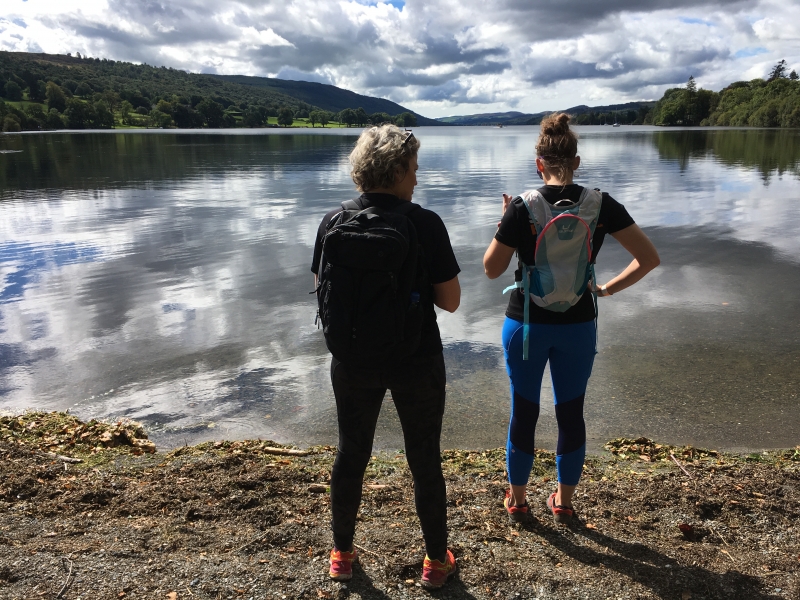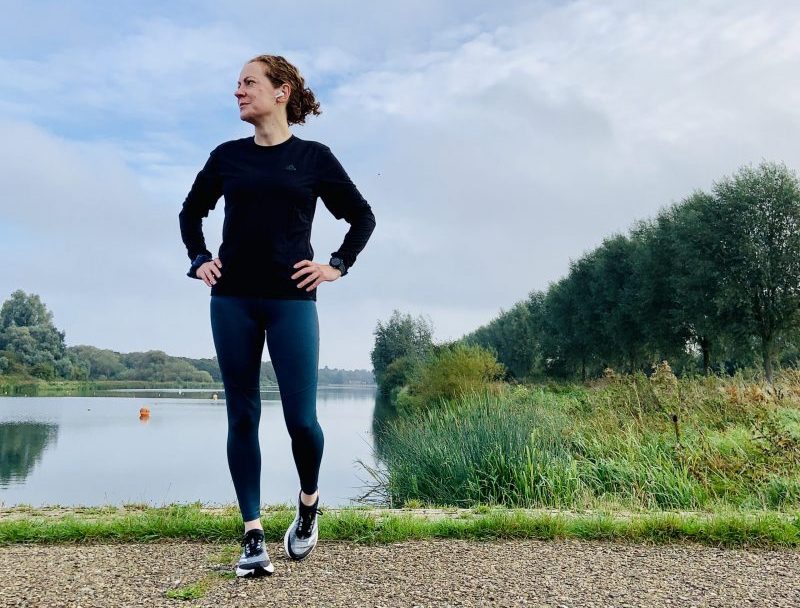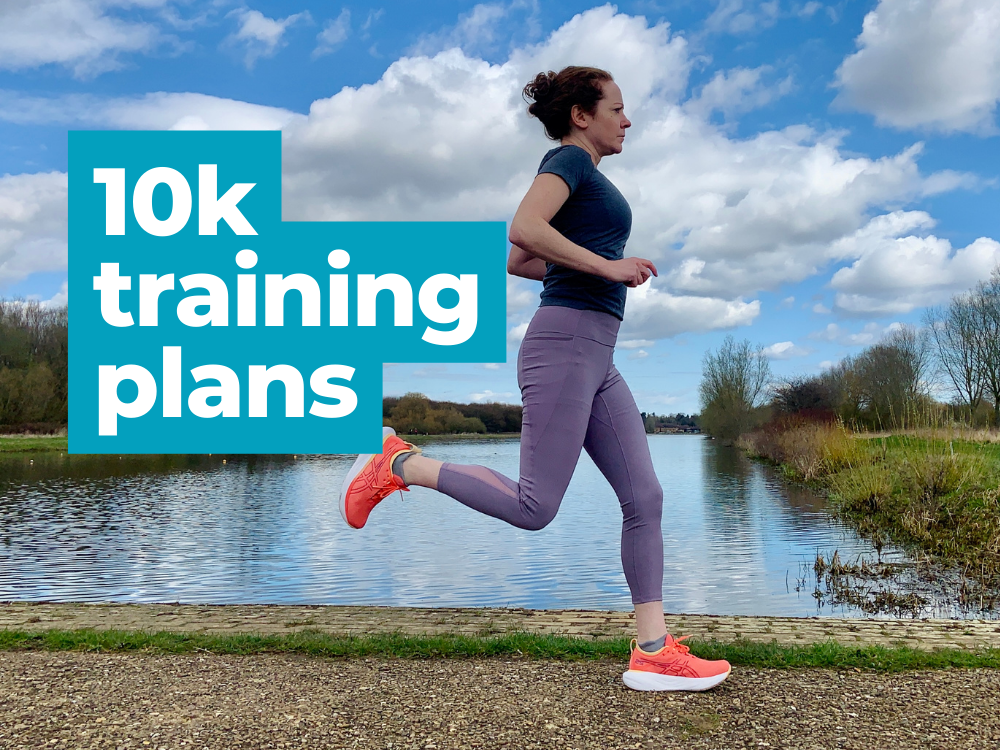
I asked my friend Josie to take me swimming the other day. I haven’t been swimming for a long time and, for various reasons, even though I survived a mass swim start of an Ironman with 2000 other swimmers, I was nervous about going to the pool.
It can be scary and intimidating doing something for the first time or after a long hiatus, and before you know it you’ve put it off for six months. Even though you actually DO want to do it.
In September my friends Josie and Liz swam the length on Coniston (that’s it and them above, all 5.5 miles of it). At the start of last year both were fairly new swimmers, so I asked them for some tips on getting started. Here’s what they said.
Josie
Here are some things that worried/confused me, or that I would have found useful when starting swimming…
For something so small, a swimming costume can be a very intimidating bit of kit. Once you wrestle it on and get in the water, you’ll realise that no one is paying the least bit of attention to what you look like. Very soon it becomes just another piece of exercise clothing.
When you first start out, the goal is not to get from one end of the pool to the other as fast as you can. I say this from experience; a few years ago, when I got in the pool for the first time in about ten years (because I’d entered a triathlon and had 10 weeks to practice not drowning) I gave those first 20 metres (of a 33m pool) everything I had. And then I had to hang onto the side of the pool and gasp and panic for a few minutes, whilst I caught my breath and wondered why the heck it was so hard.
Swimming does not respond well to panic. It’s rhythmic, and once you settle in to a rhythm (often by slowing down a bit) it all flows in a way that doesn’t involve much thrashing and spluttering (again – learnt the hard way!)
Swimming fitness comes so much faster than running fitness. Hang in there, results are coming!
It’s all technique! Anyone can learn it. Like anything, some people are naturally more suited to it, but anyone can learn how to swim. So invest in a few lessons if you can, local pools and triathlon clubs teach and encourage all levels and abilities, and take away some drills and exercises to work on to help keep improving your technique.
It’s good to have a plan. A bit like going to the gym, if I don’t have a vague idea of what session I’m going to do, a vague sort of session tends to happen. I have found myself in the water for half an hour without having done much actual swimming. Even if your plan is as simple as ‘1 length, 2 mins rest, x 10’ it will help keep you focused.
For a pleasant swim in a public pool with lane ropes out, it’s worth taking a minute to understand lane etiquette. Keep an eye out for a board at the top of each lane that gives you an idea of the speed people are swimming in there (Fast/Medium/Slow). If you get in a lane with faster swimmers, be mindful that they may overtake you, which can be a bit scary when you’re not used to people swimming very close by you. Be aware of who is around you; if you’re not sure if the person swimming behind you wants to go ahead of you, just ask!
If a locker takes 20p, it’s keeping it. If it takes £1, you’re getting it back. Check with the Reception what they take and make sure you have it in your purse before hitting the changing room, or you’ll have to do a dash back out in full bathing attire to get the right change. (Yes, done that too…).
When you get it right, it feels like you’re flying.
Liz
Getting off the sofa or out of bed and going to the pool is hard and often not appealing. So break it down. Put your clothes in a bag. Get in your car or on a bus. Get changed. Don’t think about getting into the water, walking out in your swimsuit or whatever else is putting upi off just think one step at a time.
Start small. Go with the aim of doing something manageable that first time. So that might be 10 lengths or whatever is doable for you the first few goes. Spend these first few trips to the pool establishing a habit of going regularly.
Don’t expect too much – especially if you’re already a runner – running fitness doesn’t translate immediately.
Faster swimmers can be intimidating – be ready for that or pick time when the pool is less busy. As the lifeguards or at reception about when is a good time to visit when there’s less people in the water.
Go and get a lesson. Swimming is harder to get right than running, so get some help. Even if it’s just a couple of sessions, it can make a difference.
Sign up for a race/challenge. Or set yourself a goal. It could be that you’re going to swim 50 lengths by June.
Don’t get obsessed with gadgets. You might see people with all sorts of weird equipment, just keep doing what you’re doing. Although I do have a waterproof MP3 player which is great.






Great advise girls. I retired 3 years ago, and liked to swim, but over the years with children you swim at the side of them or walk in the water to just “be there” at there side, so 3 years ago I could swim, (but just a length of the pool. I can now 3 years later swim 50 minutes and not worry, just up and down up and down and I enjoy it.
Great advice, especially about the 20p/£1! It’s happened to us all…..
Excellent timing for this article as I am getting back to the pool to overcome my fear of bad eyesight / front crawl